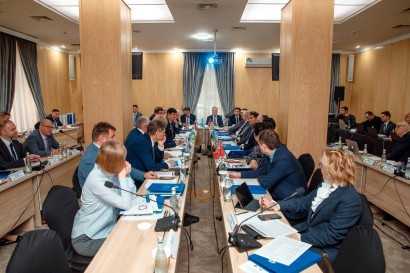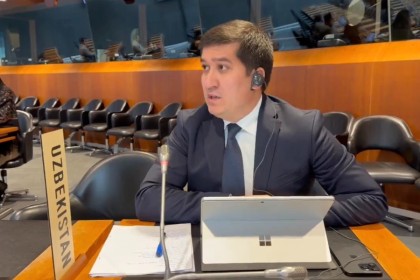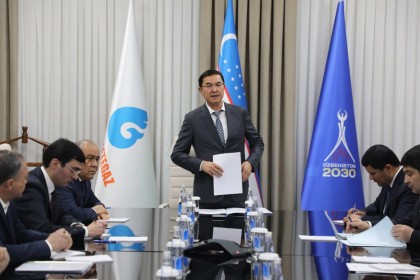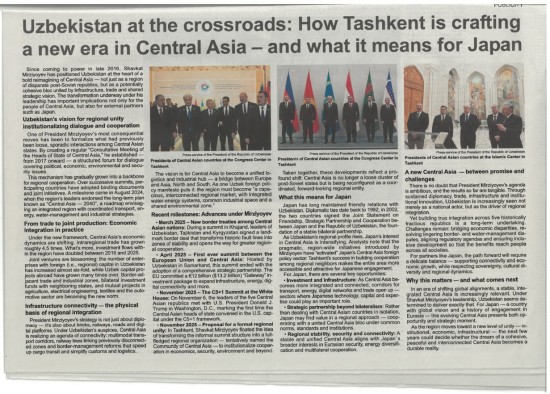Defying Taliban demands, authorities in Uzbekistan say dozens of aircraft flown into their territory as the former Afghan government collapsed last summer are the property of the United States and will not be returned to the interim government in Kabul.
The decision is likely to complicate efforts by the Uzbek government to engage with the Taliban and ultimately develop trade routes through its southern neighbor to Pakistan and the Indian Ocean.
Afghan air force personnel flew almost 50 helicopters and fixed-wing aircraft to Uzbekistan in mid-August as former Afghan President Ashraf Ghani fled the country and Taliban forces overran the capital, Kabul. Several more aircraft and Black Hawk helicopters were taken to neighboring Tajikistan to prevent them from falling into Taliban hands.
Taliban leaders have since insisted that the aircraft are Afghan property and demanded them back.
Addressing an Afghan air force ceremony in Kabul in January, Taliban Defense Minister Mohammad Yaqoob said his government would never allow the aircraft to be seized or used by its northern neighbors.
“I respectfully call on [Uzbekistan and Tajikistan] not to test our patience and not to force us to take all possible retaliatory steps [to retake the aircraft],” Yaqoob said without elaborating.
But Ismatulla Irgashev, a senior adviser to Uzbek President Shavkat Mirziyoyev, told VOA during a recent interview in Tashkent that the aircraft would not be going back to Kabul.
“The U.S. government paid for them,” said Irgashev, his nation’s most senior diplomat dealing with Afghan matters. “It funded the previous Afghan government. So, we believe it is totally up to Washington how to deal with them.
“We’ve kept this military equipment in agreement with the U.S. and have told the Taliban so.”
The escape of the pilots with the aircraft marked one of the Taliban’s few setbacks during the chaotic period that marked their complete takeover of Afghanistan.
Little has been said since about the issue, in part because of the sensitivity of the issue in Uzbek-Afghan relations and the reluctance of officials on all sides to discuss it.
But U.S. defense officials confirmed to VOA that both Uzbekistan and Tajikistan have no plans to give the aircraft to the Taliban.
"The aircraft continue to be the subject of regional security engagement with the governments of Uzbekistan and Tajikistan," a U.S. Defense Department spokesperson, Army Major Rob Lodewick, said when asked about the fate of the planes and helicopters.
As of August 21, 2021, there were 46 aircraft in Uzbekistan and 18 in Tajikistan, the official said. These included Mi-17 UH-60 helicopters as well as PC-12, C-208, AC-208 and A-29 fixed-wing aircraft.
A U.S. defense official, speaking to VOA on the condition of anonymity in order to discuss the sensitive subject, that the U.S. has “gotten eyes” on the aircraft in the two countries and said that they technically belong to the U.S. military services that procured them for the Afghan security forces.
What ultimately happens to the aircraft, though, has yet to be decided.
“[The Department of Defense] is still determining final disposition options,” the official said, noting there is interest from government agencies inside the United States, as well as from foreign partners. “This isn't going to be finalized for some time."
Despite the mystery surrounding the fate of the former Afghan aircraft, U.S. officials have long expressed confidence that they would not be handed over to Afghanistan’s Taliban rulers.
“It's safe to assume that they will not be sent into Afghanistan to be used by the Taliban,” Pentagon press secretary John Kirby said in January in response to a question from VOA. “But as to what they end up doing and where they end up going and who ends up with them, we are still working our way through that decision-making process.”
Unofficial estimates from the region say about 500 to 600 Afghans were aboard the aircraft that flew to Uzbekistan and another 140 to 150 flew to Tajikistan.
The pilots all were transferred to the United Arab Emirates in September and November last year and are being resettled in the United States.















